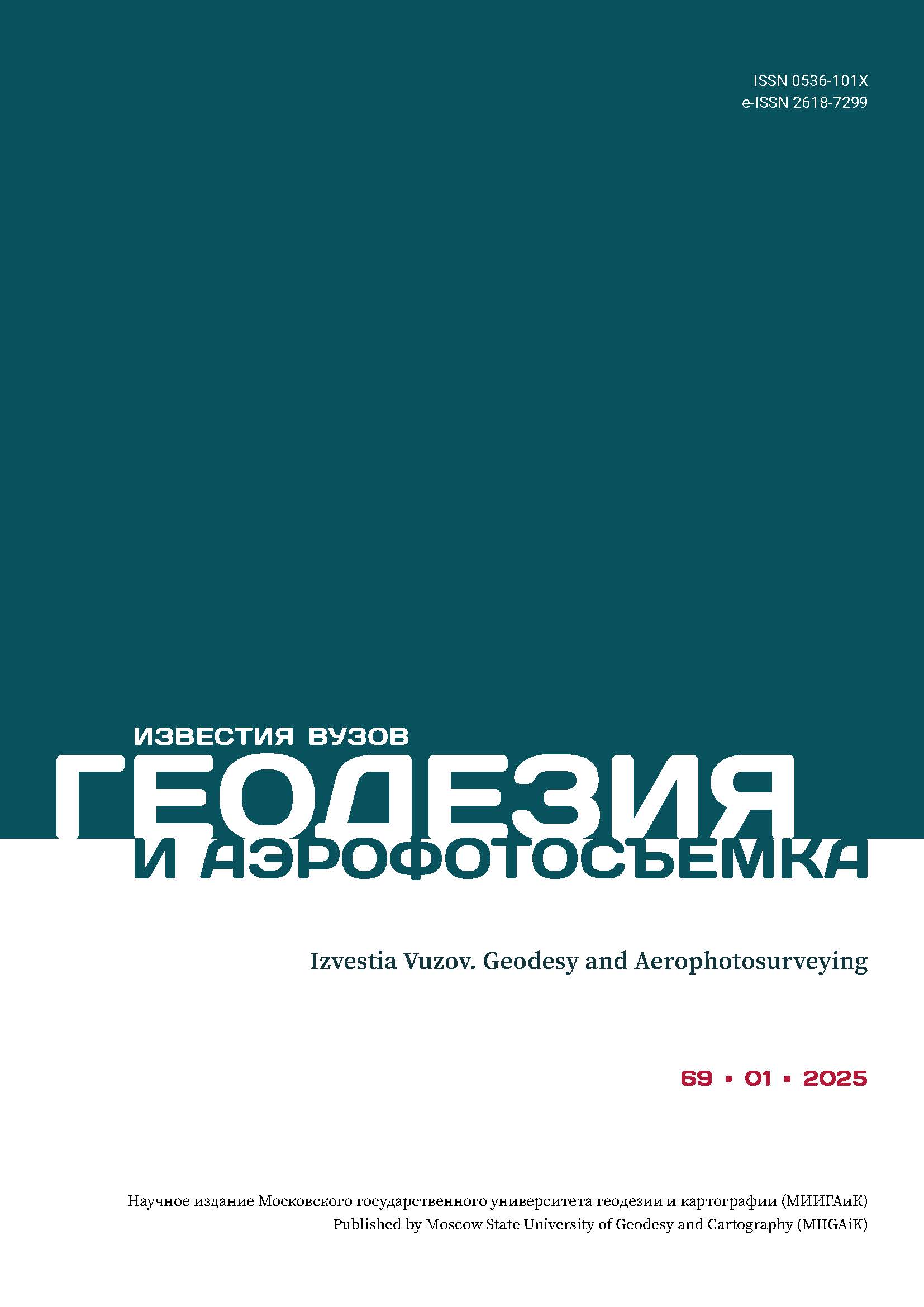UDC 528.9
CSCSTI 36.01
The article is devoted to describing a significant transformation of the cognitive concept of cartography development. The introduction provides an overview of works that are focused on the diverse needs of business entities and the general population, and also states the purpose of the study. The article provides a summary table about the concepts of cartography development. Examples of various types of educational cartographic products are given and the features of each type, carried out within the framework of the topic under study, are given. The article explains what scientific, technological and social preconditions have occurred in society that contribute to a significant transformation of a long-established cognitive concept. Based on the identified prerequisites, the essence has been determined, which is to create cartographic products and provide the general public with unique knowledge about objects and phenomena of the surrounding space in a graphically visual form. The tasks and features of cognitive cartography are also formulated. In the article, a new, refined interpretation of the cognitive concept of the development of cartography is given, where the map acts not only as a model of reality, but also as a source of knowledge for the development of horizons and the emergence of a voluntary desire for selfeducation and inspiration for self-development, as well as a social tool for influencing consciousness of the population. A course towards personalization of the creation of cartographic works is also predicted.
concepts for the development of cartography, cognitive cartography, cognitive geospatial models and maps
1. Glaz'ev S.Yu., Kosakyan D.L. Sostoyanie i perspektivy formirovaniya 6-go tehnologicheskogo uklada v rossiyskoy ekonomike // Ekonomika nauki. 2024. T. 10. № 2. S. 11–29. DOIhttps://doi.org/10.22394/2410-132X-2024-10-2-11-29.
2. Lisickiy D.V. Perspektivy razvitiya kartografii: ot sistemy «Cifrovaya zemlya» k sisteme virtual'noy georeal'nosti // Vestnik SGGA. 2013. T. 2. № 22. S. 8–16.
3. Strel'nikova A.V. Cocial'noe kartografirovanie: evolyuciya metoda // Vestnik RGGU. Seriya: Filosofiya. Sociologiya. Iskusstvovedenie. 2013. T. 2. № 103. S. 210–217.
4. Kartashova K.V., Kolesnikov A.A. Sravnitel'nyy analiz programmnyh instrumentov sozdaniya kart-istoriy // Vestnik SGUGiT. 2024. T. 29. № 3. S. 97–104. DOIhttps://doi.org/10.33764/2411-1759-2024-29-3-97-104.
5. Radchenko L.K. Razrabotka koncepcii poznavatel'nogo kartografirovaniya // Geodeziya i kartografiya. 2024. № 7. S. 25–33. DOIhttps://doi.org/10.22389/0016-7126-2024-1009-7-25-33.
6. Andryuhina Yu.N., Bugakov P.Yu., Kas'yanova E.L. i dr. Cifrovaya kartografiya: monografiya / pod nauch. red. D.V. Lisickogo. Novosibirsk: SGUGiT, 2023. 442 s.
7. Karpik A.P., Lisickiy D.V. Issledovanie mirovyh trendov i obosnovanie napravleniy razvitiya sfery geodezii i kartografii RF do 2023 goda // Geoprofi. 2021. № 1. S. 4–11.
8. Zanozin V.V., Shabanov D.I., Iolin M.M. i dr. Geoinformacionnoe kartografirovanie i monitoring kachestva sotovoy svyazi na osnove dannyh kraudsorsinga // Prirodnye sistemy i resursy. 2015. T. 2. № 12. S. 81–86. DOIhttps://doi.org/10.15688/jvolsu11.2015.2.10.
9. Ki J. GIS and Big Data visualization // Geographic Information Systems and Science. J. Rocha and P. Abrantes (ed.). IntechOpen, 2018. P. 119–131. DOI:10.5772/ intechopen.82052.
10. Utrobina E.S. Mobil'naya kartografiya. Osobennosti, svoystva i ponyatie mobil'noy karty // Vestnik SGUGiT. 2024. T. 3. № 29. C. 105–117. DOIhttps://doi.org/10.33764/2411-1759-2024-29-3-105-117.
11. Utrobina E.S., Kokorina I.P., Molokina T.S. Vyyavlenie novoy funkcii kartograficheskih izobrazheniy, predstavlennyh v mobil'nyh ustroystvah // Vestnik SGUGiT. 2022. T. 27. № 2. S. 149–162. DOIhttps://doi.org/10.33764/2411-1759-2022-27-2-149-162.





